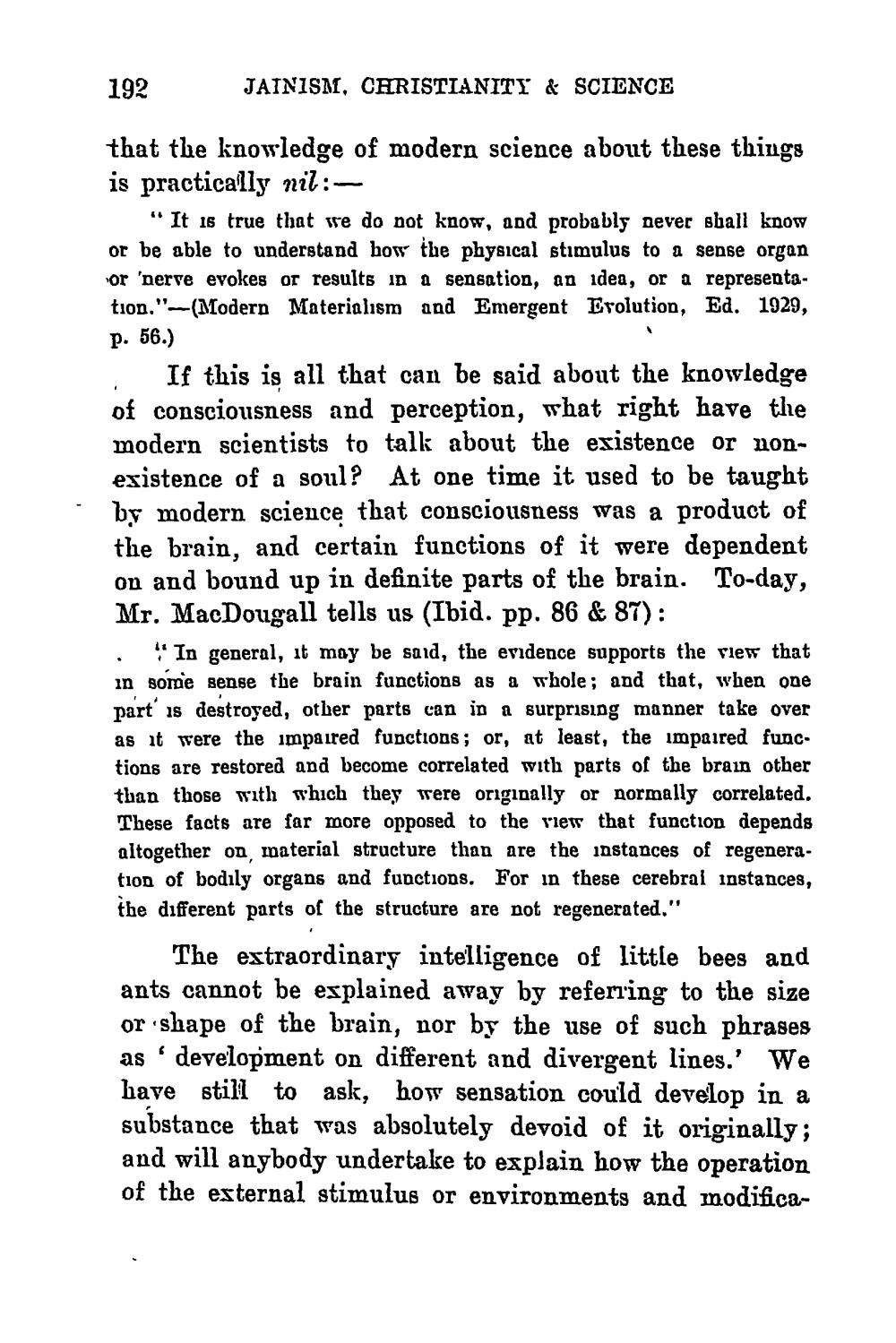________________
192
JAINISM, CHRISTIANITY & SCIENCE
that the knowledge of modern science about these things is practically nil:
" It is true that we do not know, and probably never shall know or be able to understand how the physical stimulus to a sense organ or 'nerve evokes or results in a sensation, an idea, or a representation."-(Modern Materialism and Emergent Erolution, Ed. 1929, p. 56.) : If this is all that can be said about the knowledge of consciousness and perception, what right have the modern scientists to talk about the existence or nonexistence of a soul? At one time it used to be taught by modern science that consciousness was a product of the brain, and certain functions of it were dependent on and bound up in definite parts of the brain. To-day, Mr. MacDougall tells us (Ibid. pp. 86 & 87):
Io general, it may be said, the evidence supports the view that in some sense the brain functions as a whole; and that, when one part' is destroyed, other parts can in a surprising manner take over as it were the impaired functions; or, at least, the impaired functions are restored and become correlated with parts of the brain other than those with which they were originally or normally correlated. These facts are far more opposed to the view that function depends altogether on material structure than are the instances of regeneration of bodily organs and functions. For in these cerebral instances, the different parts of the structure are not regenerated."
The extraordinary intelligence of little bees and ants cannot be explained away by referring to the size or shape of the brain, nor by the use of such phrases as 'development on different and divergent lines.' We have still to ask, how sensation could develop in a substance that was absolutely devoid of it originally; and will anybody undertake to explain how the operation of the external stimulus or environments and modifica




